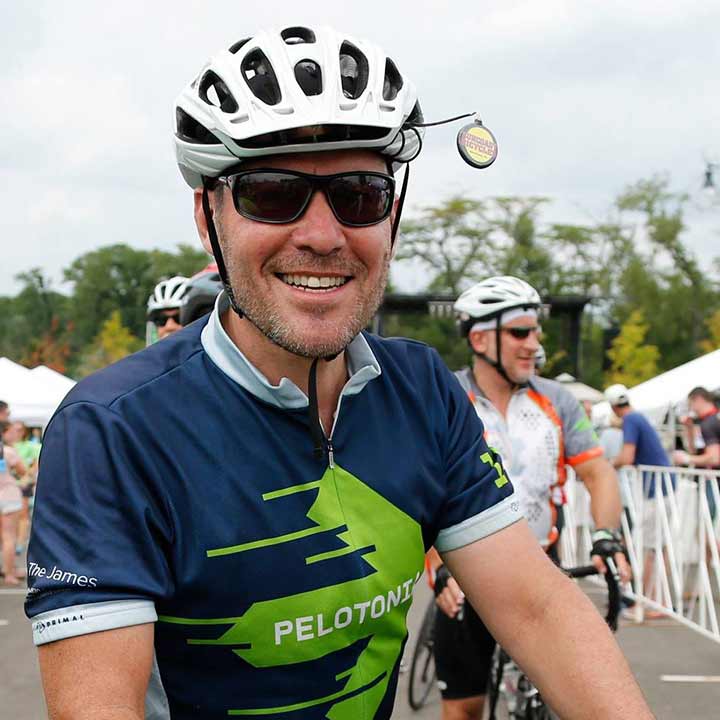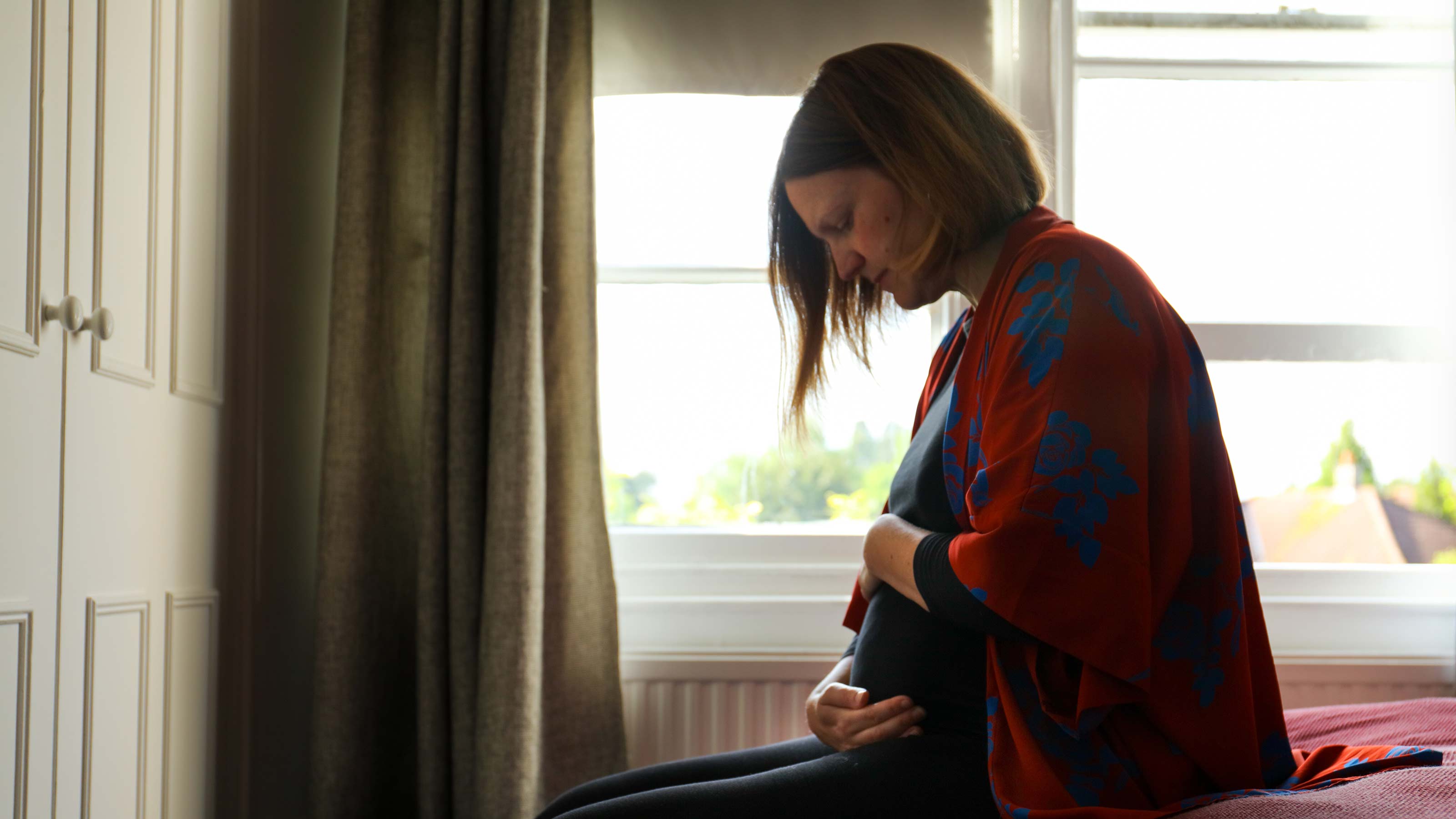Community health: Delivering care in its purest form to those in need
Ohio State physicians move outside the hospital walls to bring specialty care to underserved populations.
It’s not uncommon for patients to arrive in pain at an Ohio State clinic designed to provide kidney stone services to low-income people. For many, barriers to maintaining their health mean even routine care can be challenging, let alone specialty care for complex health needs.
“There was one patient, just today, who was in so much pain she was crying. Some have been in pain for months, even years,” says Michael Sourial, MD, a clinical assistant professor of Urology at The Ohio State University College of Medicine who runs the program. “Then, it’s so rewarding to see people come back for their follow-ups, after surgery, and they’re no longer in pain and they’re so thankful, they give you a hug.”
Dr. Sourial is one of many physicians within The Ohio State University Wexner Medical Center who provide care directly in local communities to ensure that underserved populations receive the medical care they need and deserve.
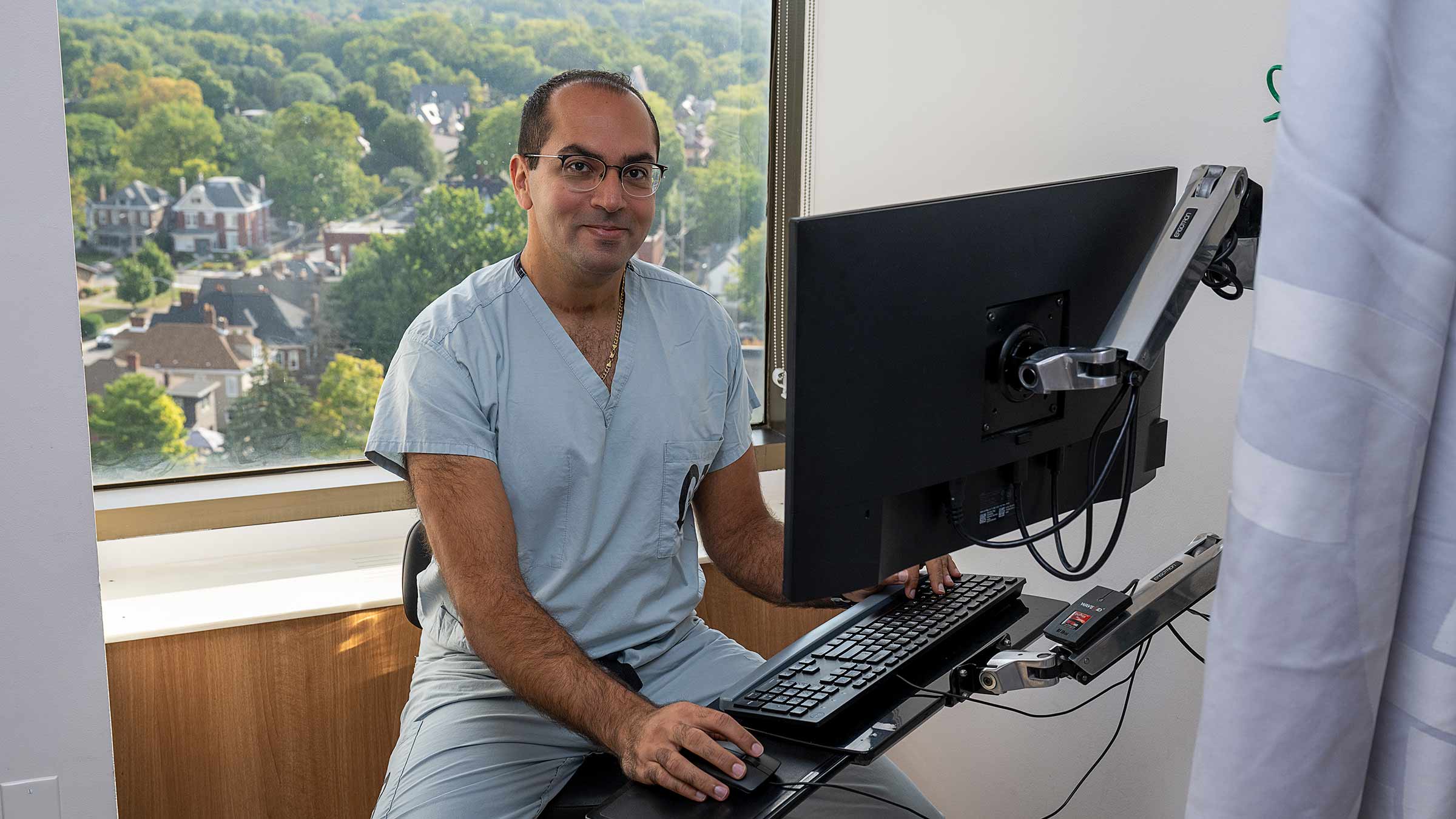
“I’m very proud that so many of our physicians are part of the community here in central Ohio and beyond, developing programs within and outside the medical center to take care of people who might not otherwise have access to our world-class medical care,” says Chyke Doubeni, MD, MPH, chief health equity officer and professor of Family and Community Medicine.
“Their commitment is improving people’s quality of life, saving lives and reducing health care disparities,” Dr. Doubeni says.
Health care disparities occur when certain populations, such as people of color, low-income individuals and people living in rural communities, have unequal access to medical care. This leads to later diagnoses, limited treatment options and can result in higher death rates.
The Ohio State Wexner Medical Center has historically reached out to these vulnerable populations to provide much-needed medical services.
“That’s what brought me here [in 2019],” says Kamilah Dixon, MD, a clinical associate professor of Obstetrics and Gynecology. “I saw the focus on taking care of the community, the investment from the top levels of the administration, and that’s central to everything I want to do as a physician.”
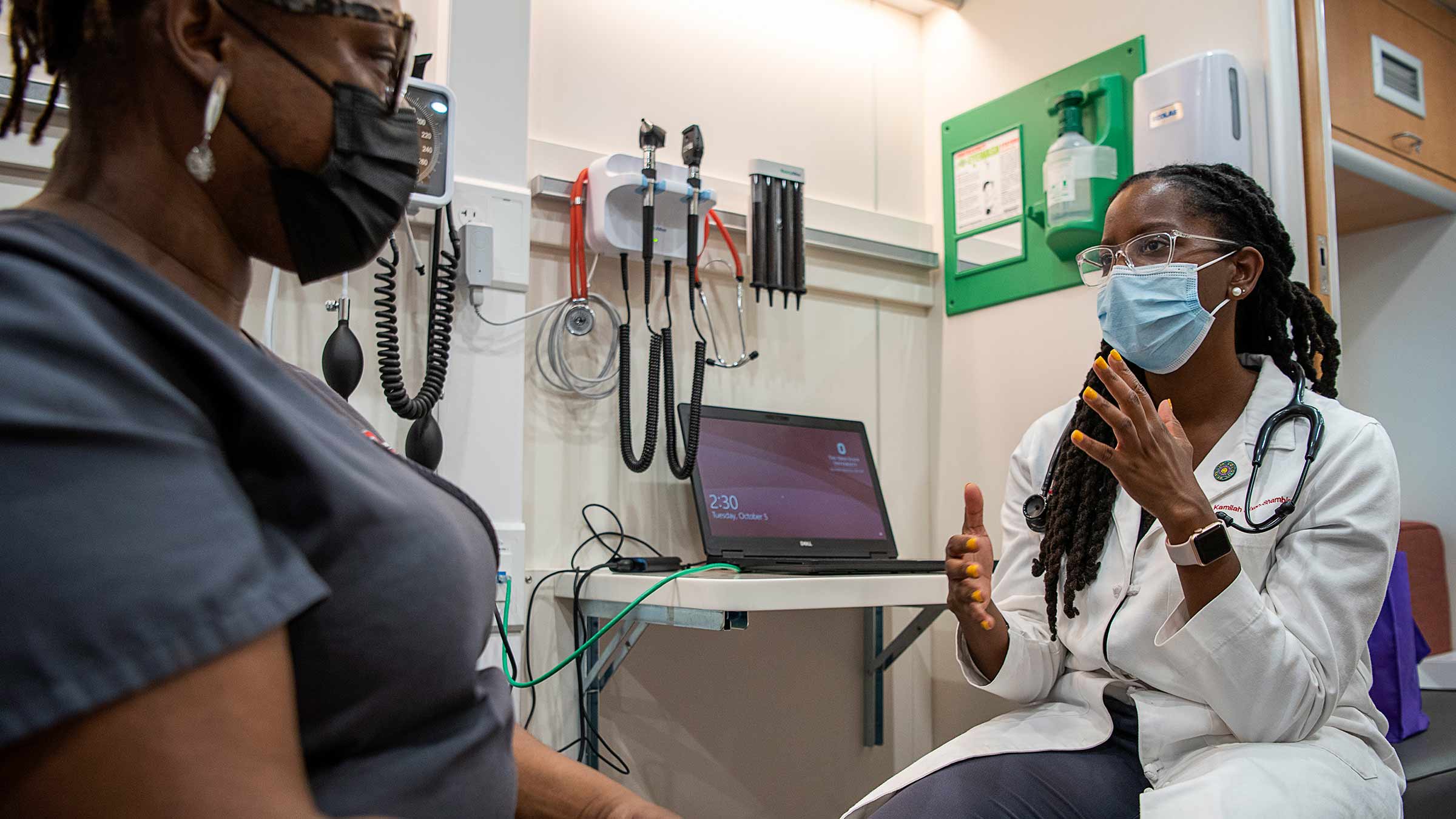
Addressing the rising growth of kidney stones in underserved patients
Dr. Sourial’s specialties include treating patients with kidney stones, a common, often-painful condition that frequently requires surgery. To meet the needs of low-income patients, Dr. Sourial created the Comprehensive Kidney Stone Program at The Ohio State University Wexner Medical Center East Hospital. This multidisciplinary program includes dietitians to help patients prevent or reduce the growth of kidney stones through better diets, a nurse coordinator to manage follow-up care and a team of nephrologists (kidney stone prevention specialists).
More than 180 patients have taken part in the program since it began in 2018. Dr. Sourial and Tasha Posid, PhD, MA, an education specialist, attend community events and reach out to local organizations and physicians to spread the word and enroll even more people.
“We’ve been awarded state and federal funding to improve access to quality care at a lower cost for patients with Medicaid,” Dr. Sourial says. “For the uninsured, Ohio State has several different options for these patients.”
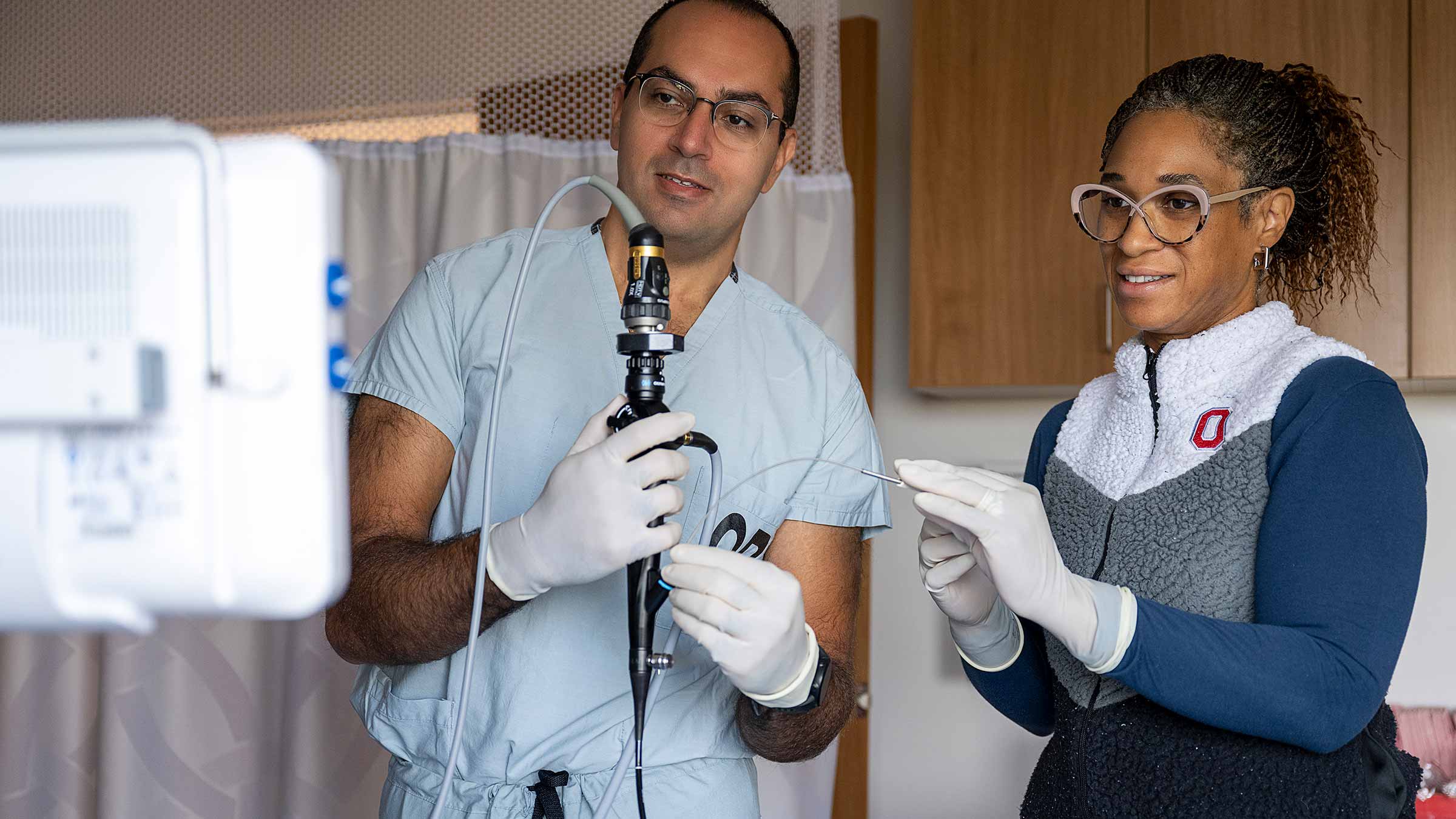
Expanding urologic care to vulnerable patients
Dr. Sourial and Dr. Posid next connected with Physicians CareConnection, a volunteer-based, charitable organization that coordinates care for vulnerable adults in central Ohio.
“They didn’t have a urologist in their program before. Tasha knocked on their door and said, ‘We can help,’” Dr. Sourial says. “We always take one of our residents with us to make sure they have an opportunity to see these different patient populations and better understand the community.”
“Being able to connect with and better understand the patient population and all their different backgrounds is important and helps us provide better treatment,” Dr. Posid says.
Dr. Sourial also volunteers annually as part of a Honduras medical mission. “Three of us urologists (from different medical centers) do it every year,” he says. “We run three rooms, see everyone on Sunday and then operate Monday to Friday.”
Helping underserved populations is a rewarding experience for Dr. Sourial. “I feel like we’re reaching out to and helping people who don’t have access to care, and being able to deliver that care is important,” he says. “It boosts my energy and makes me want to do more. This is medicine in its purest form.”
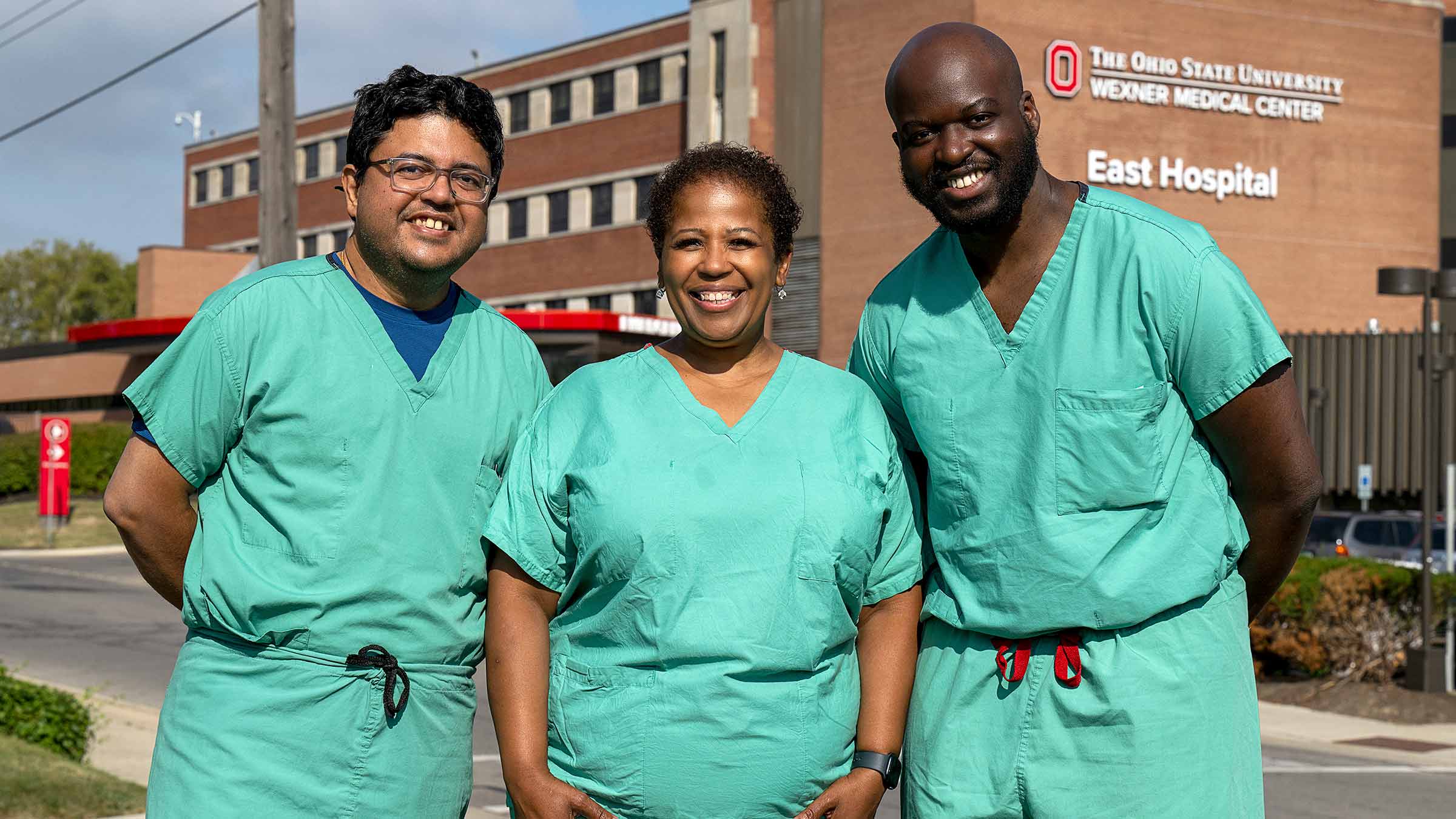
Overcoming disparities in colorectal cancer screening
Soon after he arrived at Ohio State, gastroenterologist Samuel Akinyeye, MD, became involved in community-based projects under the guidance of some of the medical center’s more senior physicians. “That let me know it was possible to do even more and that it was actually encouraged here,” says Dr. Akinyeye, a clinical assistant professor of Internal Medicine.
One of the events was a yearly free colonoscopy screening program. Wanting to do more, Dr. Akinyeye teamed up with another gastroenterologist, Subhankar Chakraborty, MD, PhD, assistant professor of Internal Medicine, and Jackiethia Butsch, senior outreach coordinator in the Office of Community & Civic Engagement, to start a colonoscopy screening program at East Hospital.
“We decided to have them quarterly, on Saturdays, because many people can’t get off work on a weekday,” Dr. Akinyeye says. “This is a free colonoscopy program for the uninsured that they wouldn’t otherwise be able to access.”
The first free colonoscopy screening session was held in July 2022 at East Hospital. They have been held quarterly since, and expanded to include a nearby outpatient care center. More than 100 patients have undergone colonoscopies in the program, which partners with the nonprofit Columbus Free Clinic to raise awareness.
Colonoscopies are vital, as the removal of precancerous polyps prevents the development of colorectal cancer. The outcome for patients whose cancer is detected in the early stages is better than for those patients with more advanced, metastatic colorectal cancer.
“This is especially important in the Black community as Black people have a higher mortality rate from colorectal cancer,” Dr. Akinyeye says. “Nationally, Black people are 20% more likely to get colorectal cancer and 40% more likely to die from it.
“We’re talking about ways to expand the program,” he says. “It’s not just Dr. Chakraborty and me; several other of our gastroenterologists have volunteered and they really seem to love it. The patients are very thankful and relieved when we remove precancerous polyps. They want to be healthy, but, in addition to socioeconomic barriers, there’s a fear factor of colonoscopies, and we’re working to remove these barriers.”
Changing the outcomes for pregnant Black women
Black women are three times more likely to die from pregnancy-related medical issues than white women, according to the Centers for Disease Control and Prevention. This disturbing statistic motivated Dr. Dixon to get involved in the medical center’s Community Care Coach.
The Community Care Coach, a mobile health unit, provides on-site medical services to underserved communities. However, it didn’t have a prenatal and postpartum component until Dr. Dixon stepped in, along with a team from the departments of Obstetrics and Gynecology and Family and Community Medicine. They began services in 2020, just before the COVID-19 epidemic began.
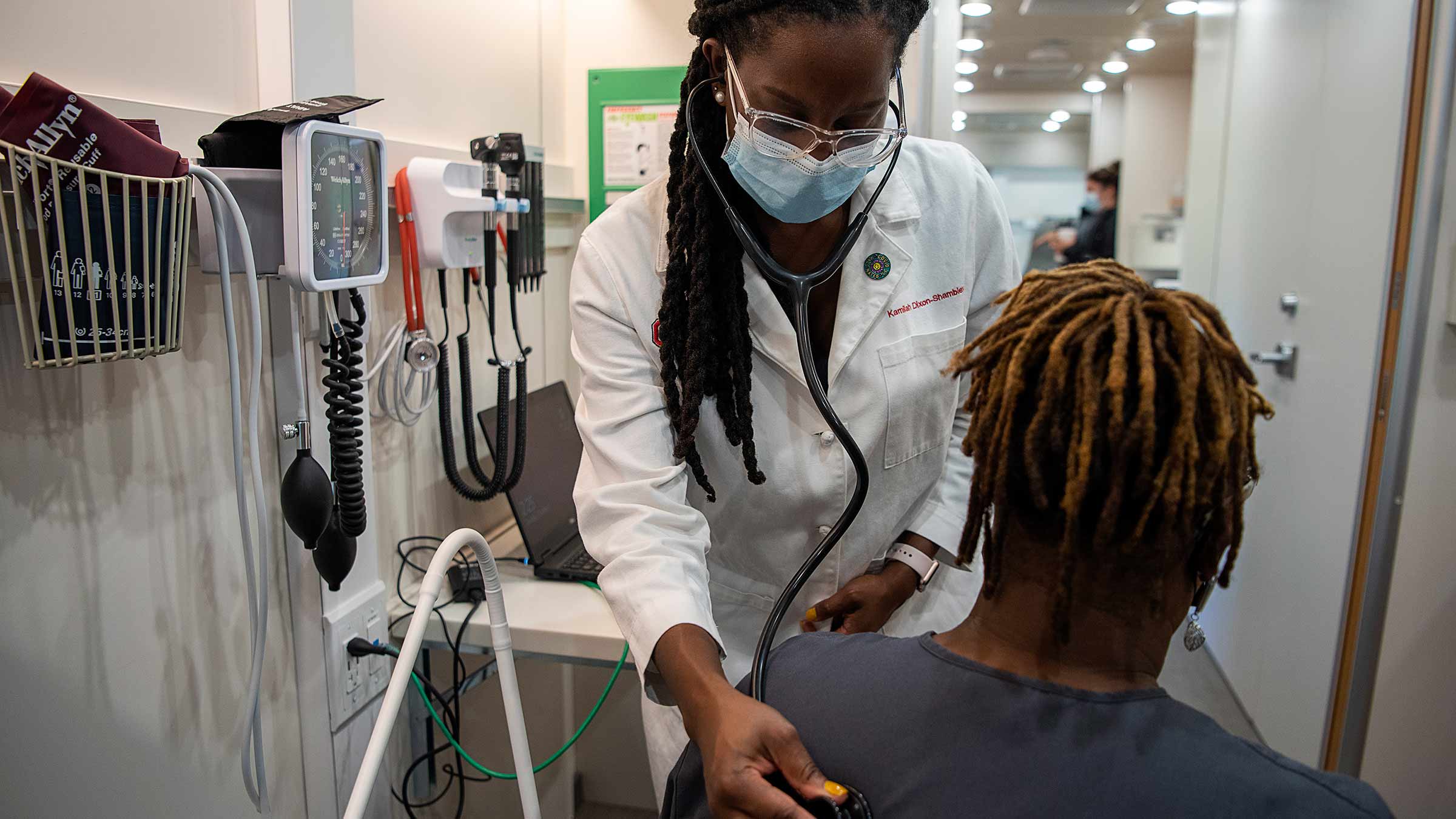
“We saw our first five women and were so excited, and then we had to shut down in-person services due to the pandemic,” Dr. Dixon says.
“What we’re trying to change is the fact that some pregnant people never receive prenatal care,” she says, adding this is the result of several factors including structural racism, the lack of insurance and child-care services and transportation issues.
Prenatal care is vital in diagnosing medical conditions in the mother, such as blood-pressure issues and gestational diabetes, that could endanger their lives and the lives of their babies. Postpartum care is important to monitor the health of new mothers and monitor them for and treat their postpartum depression.
Dr. Dixon is also the medical director of Moms2B, a community-based pregnancy education program that aims to improve the infant mortality rate in Franklin County. The program sees more than 500 women a year.
“I feel so lucky to be able to do this work, it’s an absolute privilege,” says Dr. Dixon, who is determined to continue to expand the services she and her team provide through the Community Care Coach and Moms2B. “I want all my patients to have the healthiest pregnancies possible and be empowered to have the best possible lives.”
There’s an extra perk that comes with this work: “I do get to meet the babies and I just love that so much,” Dr. Dixon says.
Working to stop preventable overdose deaths
“There’s an incredibly potent drug out there, fentanyl, and since it has become the predominant opioid, more than 100,000 people are dying from drug overdose every year,” says Julie Teater, MD, a clinical associate professor of Psychiatry and Behavioral Health. “It’s one of the leading causes of preventable death.”
Getting naloxone (an FDA-approved medication that reverses opioid overdose and goes by the name brand Narcan®) into the hands of the public reduces the number of deaths, Dr. Teater explains, adding that this is her goal as the leader of Ohio State’s participation in Project DAWN (Deaths Avoided With Naloxone), sponsored by the Ohio Department of Health.
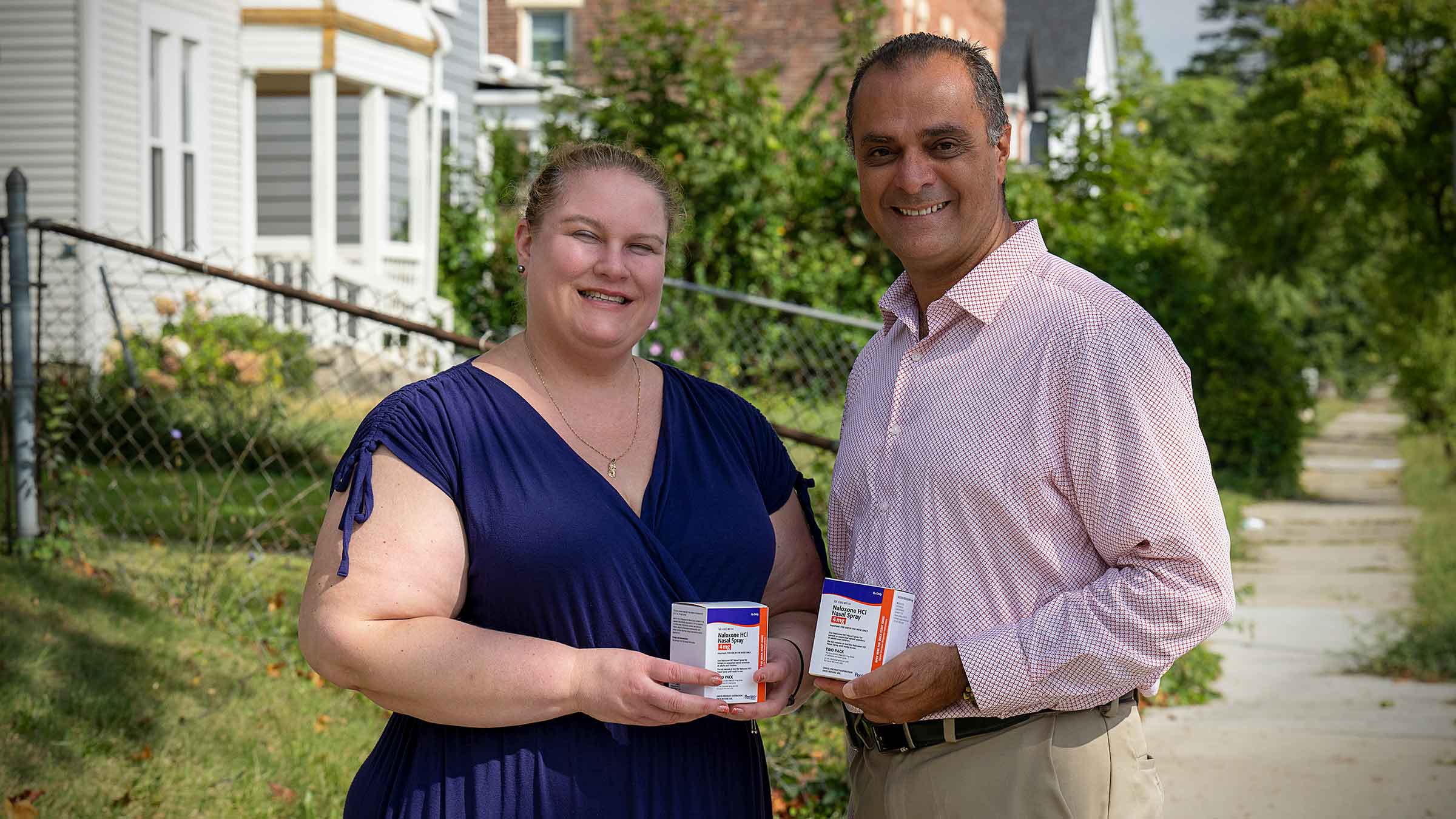
“Narcan can literally save someone’s life while also giving them the opportunity to seek treatment and enter recovery,” Dr. Teater says, adding that fentanyl is so lethal and hard to identify in drugs that “it can lead to death even after one use.” Through Project DAWN, naloxone is distributed at community events and health fairs. The team is working to expand distribution through other venues as well.
Dr. Teater, an expert in addiction medicine, understands that it can be hard to raise awareness and reduce stigma in the general public for services. “Working with addiction has humanized the condition for me,” she says. “Seeing how powerful addiction is and how obtainable recovery can be motivates me.”

When you give to The Ohio State University Wexner Medical Center, you’re helping improve lives
We’re committed to making advancements in research, education and patient care that will have an impact throughout Ohio and the world.
Ways to Give


